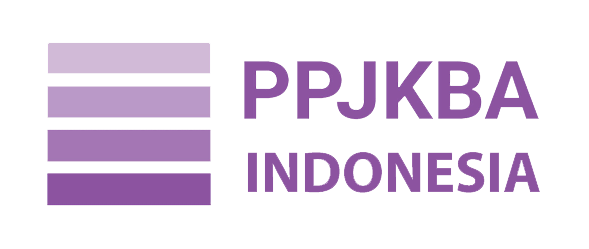Undergraduate Gender and Its Pedagogical Implications in Oral Performance Education
جنس الطلاب الجامعيين وآثاره التربوية في تعليم الأداء الشفهي
DOI:
https://doi.org/10.35719/arkhas.v1i2.1257Keywords:
الجنس، الأداء الشفهي, gender, oral language performanceAbstract
Psychological factors, including gender differences, strongly influence students' success in mastering speaking skills. This study aims to describe: (1) the relationship of gender with oral language performance in students of the Arabic Education Studies program at the Islamic Institute of the Holy Country and (2) the implications of gender differences in Arabic language learning. This study uses quantitative methods with a sample of 66 of the 108 students in the second semester of the Arabic education study program at the Islamic Institute of the Holy Land, and the data collection method is a test. With linear regression analysis and bivariate correlation analysis, Pearson. The results showed that: (1) there is a gender relationship with oral language performance, where the Pearson correlation value of 0.257 or the value of R count is greater than the value of the R table, as well as the influence of gender on oral language performance by 6.6% (2) The selection of appropriate learning strategies by students will be able to overcome individual differences or gender, where the results of this study indicate that female student are better than men in Arabic speaking skills.
إن عوامل الطلاب النفسية لها أثر كبير في نجاح الطلاب عند تعلم مهارة الكلام، ومن العوامل النفسية هي الفروق بين الجنسين. فيهدف هذا البحث إلى وصف: (1) علاقة الجنس بالأداء الشفهي لدى طلاب قسم تعليم اللغة العربية في الجامعة الإسلامية الحكومية بقدس، (2) الاستفادة من الفروق بين الجنسين في تعليم اللغة العربية. استخدم البحث الكمي مع عينة البحث هي 66 طالبا من 108 طالب في قسم تعليم اللغة العربية للمرحلة الثانية في الجامعة الإسلامية الحكومية بقدس وأساليب جمع البيانات هي الاختبار. مع تحليل الانحدار الخطي وتحليل الارتباط الثنائي المتغير بيرسون.دلت نتائج البحث إلى: (1) وجود علاقة بين الجنس والأداء الشفهي، حيث نتيجة Pearson Correlation 0،257 أو r الحسابي أكبر من 0،244(r الجدولي). والجنس يؤثر 6،6 % على التحصيل الدراسي في الأداء الشفهي. (2) أن اختيار استراتيجيات التعلم المناسبة من الطلاب يستطيع أن يتغلب على الفروق بين الجنسين حيث يدل هذا البحث إلى تفوق الإناث على الذكور في الأداء الشفهي أو الكلام.
References
al-H̱auliy. (2012). Mabādi' 'Ilm al-Nafsiy al-tarbawiy. al-'Ain al-Daulah al-Imārāt al-'Arabiyyah al-Muttaḥidah: Dār al-Kitāb al-Jāmi'iy.
al-Ziyāt. (2006). al-Usus al-Ma'rīfiyyah Li al-Takwīn al-'Aqliy al-Ma'rifiy Wa Tajhiz al-Ma'lūmāt. Miṣr: Dār al-našr Li al-Jāmi'āt.
Couch, J. V, & Sigler, J. N. (2001). GENDER PERCEPTION OF PROFESSIONAL OCCUPATIONS “.,” 693–698.
Chee, K. H., & Pino, N. (2018). GENDER DIFFERENCES IN THE ACADEMIC ETHICS AND ACADEMIC ACHIEVEMENT *, (January 2005).
Erten, İ. H. (2009). Gender differences in academic achievement among prospective Turkish teachers of English as a foreign language, (October 2013), 37–41. https://doi.org/10.1080/02619760802586113
Feingold, A. (1992). Sex Differences in Variability in Intellectual Abilities : A New Look at an Old Controversy, 62(1), 61–84.
Hunter, D., Gambell, T., & Randhawa, B. (2005). Gender gaps in a group listening and speaking : issues in social constructivist approaches to teaching and learning Gender gaps in group listening and speaking : issues in social constructivist approaches to teaching and learning, (July 2014), 37–41. https://doi.org/10.1080/00131910500149416
Kobayashi, Y. (2016). The Role of Gender in Foreign Language Learning Attitudes : Japanese female students ’ attitudes towards English learning The Role of Gender in Foreign Language Learning Attitudes : Japanese female students ’ attitudes towards English learning, 0253(December). https://doi.org/10.1080/0954025022013302
Krkovic, K., Greiff, S., & Kupiainen, S. (2014). Teacher evaluation of student ability : what roles do teacher gender, student gender, and their interaction play ?, (September), 37–41. https://doi.org/10.1080/00131881.2014.898909
Liyanage, I., & Bartlett, B. J. (2012). Gender and language learning strategies : looking beyond the categories, (August), 37–41.
Nowell, A. (1998). Trends in Gender Differences in Academic Achievement from 1960 to 1994 : An Analysis of Differences in Mean, Variance, and Extreme Scores, 39.
Rebeca L, O. (1993). Instructional implications of gender differences in second/foreign language learning styles and strategies. Applied Language Learning, V4, 65–94.












